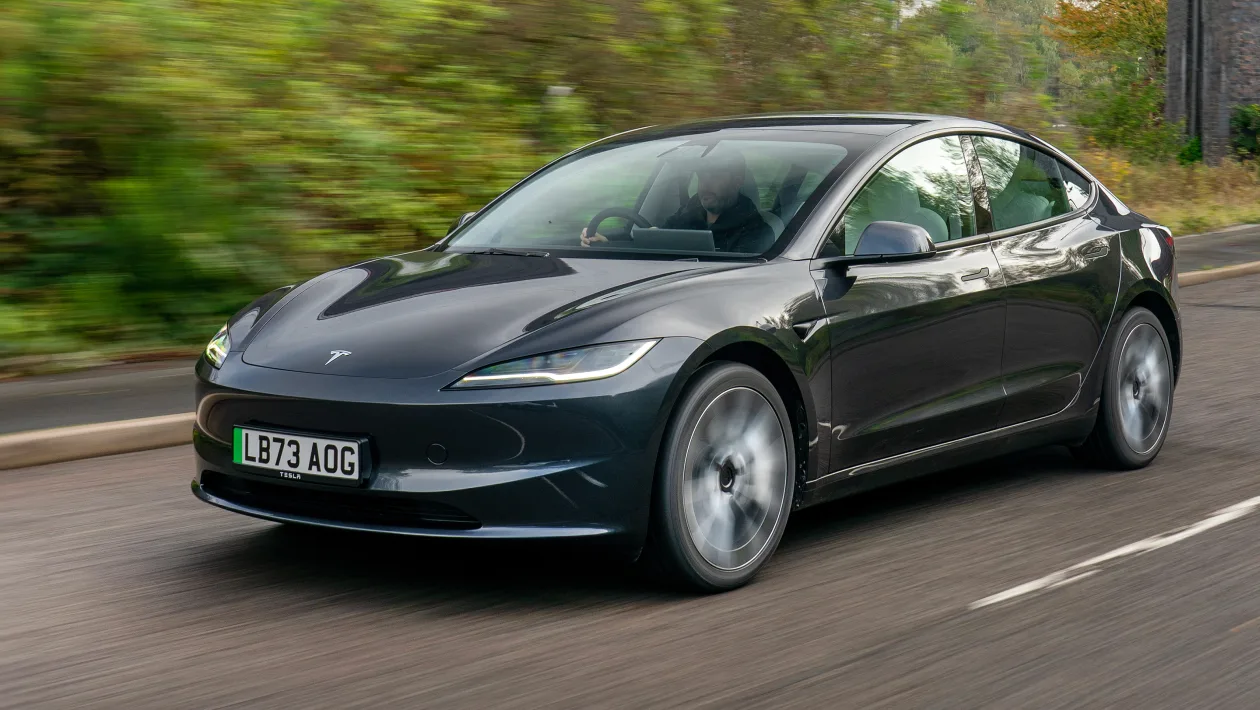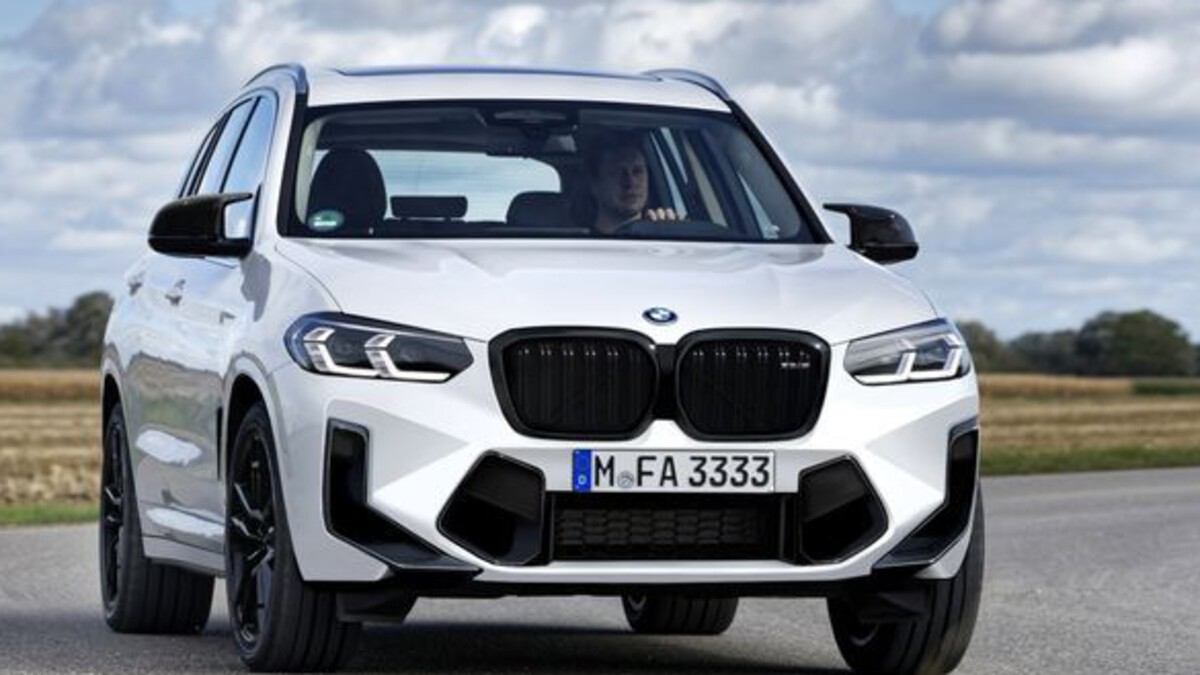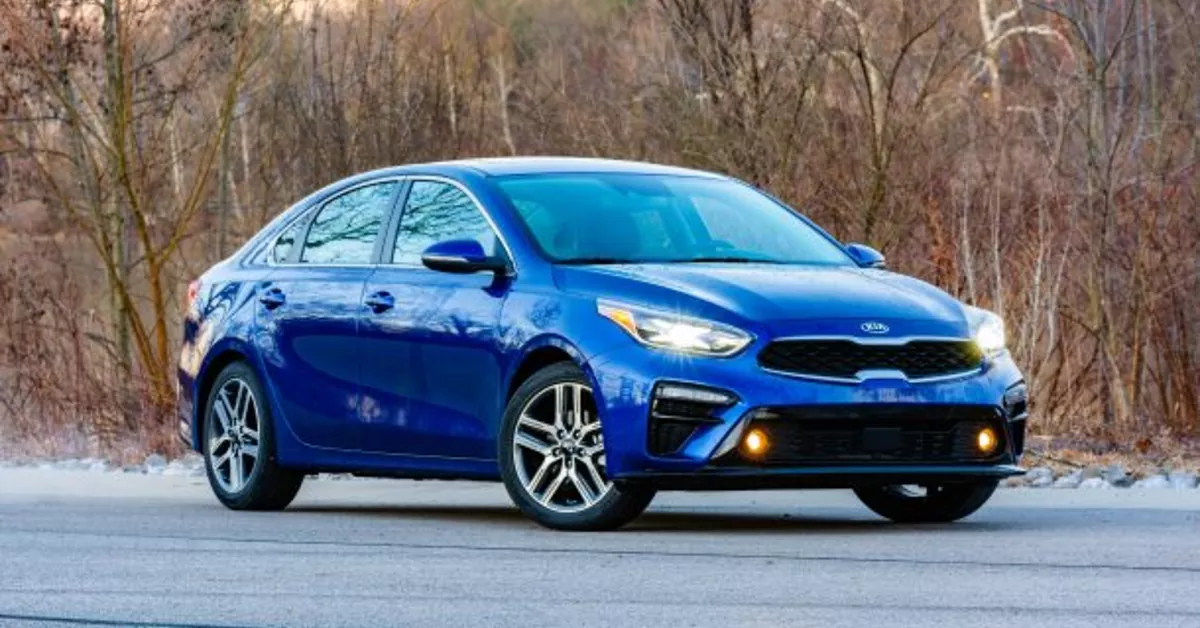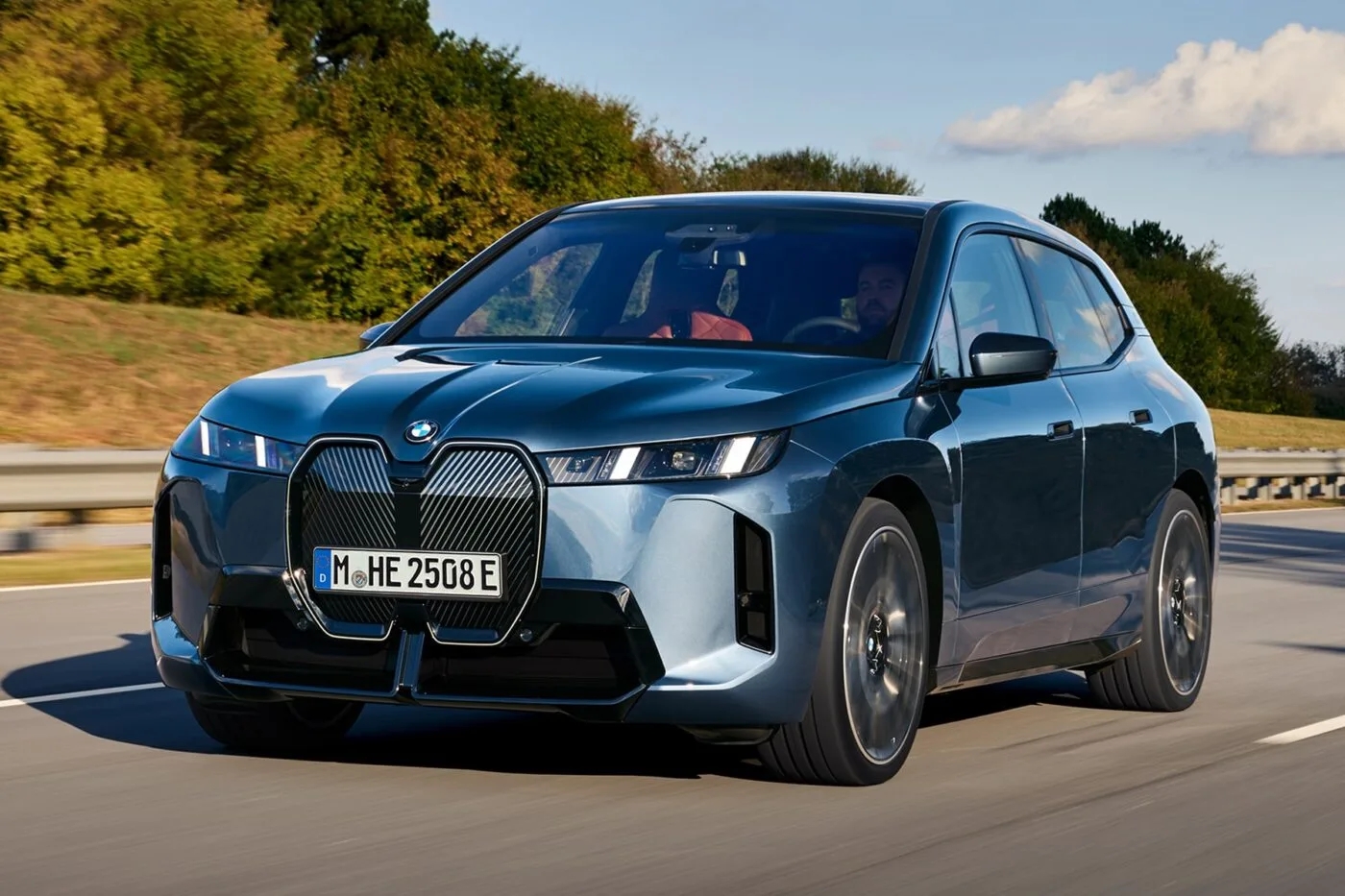The evolution of automotive security has reached a critical juncture where the convenience of wireless key technology meets the sophisticated threats of modern cybercriminals.
As vehicles become increasingly connected and digitized, the security of their entry systems has become paramount to protecting both the vehicle and its occupants.
Today’s automotive landscape presents a stark contrast between manufacturers who have embraced cutting-edge security technologies and those whose vehicles remain vulnerable to simple, inexpensive hacking tools.
The wireless key market has experienced significant vulnerabilities in recent years, with millions of cars with radio-enabled keys made by Toyota, Hyundai, and Kia being vulnerable to hijacking thanks to flaws in their encryption.
Meanwhile, ultra-wideband (UWB) technology is emerging as a game changer in automotive security, offering precise distance measurements and making it highly resistant to relay attacks.
The disparity between secure and vulnerable systems has never been more pronounced, with some vehicles requiring sophisticated equipment and expertise to breach, while others can be compromised in seconds using devices costing less than $100.
Understanding which vehicles offer robust security and which remain vulnerable is crucial for consumers making purchasing decisions and for current owners seeking to protect their investments.
This comprehensive analysis will examine five vehicles with advanced security features and five that remain surprisingly vulnerable to modern hacking techniques.
5 Cars With Secure Wireless Keys
These technologically advanced vehicles feature sophisticated wireless key systems that employ multiple layers of encryption and rolling code technology to prevent unauthorized access and cloning attempts by sophisticated criminals.
Tesla Model S and Model X key fobs can even be used to initiate automated parking and unparking sequences, with enhanced security features that make key fob encryption a very attractive target for cyberattacks but ultimately unsuccessful due to advanced countermeasures.
Newest models have added layers of key fob verification systems that implement dynamic authentication protocols, cryptographic rolling codes, and multi-factor verification processes that change with each use, making traditional cloning devices ineffective against modern security implementations.
These vehicles incorporate proprietary encryption algorithms, frequency-hopping spread spectrum technology, and time-sensitive authentication tokens that create an impenetrable barrier between legitimate access and criminal exploitation, while maintaining seamless user experience through intelligent proximity detection and automatic locking mechanisms.
1. Tesla Model S/3/X/Y (2024+ with UWB)
Tesla has positioned itself at the forefront of automotive security innovation, particularly with the introduction of ultra-wideband (UWB) technology in their latest vehicle updates.
Tesla improved its phone key feature with ultra-wideband support in the latest vehicle models, with the technology used to detect when an owner with a compatible device is nearby.
This advancement represents a significant leap forward from traditional Bluetooth-based systems that have proven vulnerable to relay attacks. The UWB implementation in Tesla vehicles operates on a fundamentally different principle than conventional key fobs.
Rather than simply broadcasting a signal that can be intercepted and replayed, UWB technology creates a secure communication channel that measures precise distances between the key device and the vehicle.
This distance measurement capability makes it extremely difficult for criminals to execute relay attacks, which have become the most common method of stealing modern vehicles.
Tesla’s security approach extends beyond just the wireless key technology. The company has implemented multiple layers of protection, including their “Pin to Start” feature, which requires users to enter a PIN on the vehicle’s touchscreen before the car can be driven.
This additional security measure has proven effective even when other systems are compromised. Security testers suggest that all Tesla owners begin to use their “Pin to Start” feature as an additional layer of protection.

The integration of UWB technology with Tesla’s mobile app creates a seamless yet secure experience. Users can unlock their vehicles without removing their phones from pockets or bags, while the system maintains constant verification of the key’s proximity and authenticity.
The encrypted communication protocol used in UWB systems requires significantly more sophisticated equipment and expertise to breach compared to traditional RF-based systems.
However, it’s important to note that no system is completely impervious to attack. An automotive cybersecurity firm found that it could still hack Teslas that use updated ultra-wideband (UWB) radio frequencies, though these attacks require considerably more resources and technical expertise than those used against conventional systems.
The security improvements represent a substantial barrier to casual theft, making Tesla vehicles among the most secure options available in the current market.
Tesla’s commitment to security extends to regular over-the-air updates that can patch vulnerabilities as they’re discovered. This dynamic approach to security maintenance ensures that vehicles become more secure over time, rather than becoming increasingly vulnerable as new attack methods are developed.
The company’s proactive stance on security, combined with advanced hardware implementation, makes Tesla vehicles a benchmark for automotive security in the modern era.
2. BMW iX and i7 (2024+ Models with Digital Key Plus)
BMW has established itself as a pioneer in digital key technology, particularly with their Digital Key Plus system that leverages ultra-wideband technology for enhanced security and convenience. BMW’s Digital Key Plus allows users to unlock and start their car without taking iPhone out of a bag or pocket, representing an improvement over existing systems that require users to hold iPhone up to a door handle. This advancement showcases BMW’s commitment to both security and user experience.
The Digital Key Plus system represents a significant evolution from BMW’s original digital key implementation. While the first generation required physical proximity and specific actions to unlock the vehicle, the UWB-enabled system can detect authorized users from several meters away while maintaining robust security protocols.
The system uses Apple’s Car Key technology integrated with BMW’s proprietary security measures, creating a multi-layered defense against unauthorized access.
BMW’s approach to key security extends beyond just the wireless communication protocol. The company has implemented secure element technology within the digital key system, which provides hardware-based encryption that is extremely difficult to compromise. This secure element acts as a tamper-resistant environment where cryptographic operations are performed, ensuring that even if other parts of the system are compromised, the core security remains intact.

The iX and i7 models feature additional security enhancements that complement the Digital Key Plus system. These include sophisticated motion sensors that can detect attempted break-ins, advanced alarm systems that integrate with the digital key status, and cloud-based monitoring that can alert owners to suspicious activity around their vehicles.
The integration of these systems creates a comprehensive security ecosystem that protects the vehicle from multiple attack vectors. BMW’s partnership with Apple for the Car Key implementation brings additional security benefits.
Apple’s involvement ensures that the digital key adheres to strict security standards and benefits from Apple’s extensive experience in secure communications.
The integration with Apple Wallet provides users with familiar security features, including Face ID or Touch ID authentication, before the digital key can be used.
The UWB implementation in BMW vehicles also includes sophisticated anti-relay attack measures. The system continuously monitors signal strength and timing to detect potential relay attacks, automatically adjusting security protocols when suspicious activity is detected.
This adaptive security approach makes it extremely difficult for criminals to successfully execute relay attacks, even with sophisticated equipment. Furthermore, BMW provides owners with detailed security logs and notifications through their mobile app, allowing users to monitor when and how their vehicle has been accessed.
This transparency empowers owners to detect unauthorized access attempts and take appropriate action. The combination of advanced hardware security, software protection, and user awareness creates a formidable defense against vehicle theft.
3. Mercedes-Benz EQS and S-Class (2024+ Models)
Mercedes-Benz has invested heavily in advanced security technologies for their flagship vehicles, implementing multi-layered security systems that combine traditional physical security with cutting-edge digital protection. Mercedes-Benz offers digital keys on every model as of 2024, with their premium vehicles featuring the most advanced implementations of this technology. The EQS and S-Class represent the pinnacle of Mercedes-Benz security innovation.
The security architecture in Mercedes-Benz premium vehicles extends far beyond simple key fob protection. These vehicles feature sophisticated intrusion detection systems that monitor multiple sensors throughout the vehicle, including motion detectors, glass break sensors, and tilt sensors that can detect attempted towing. The integration of these systems with the digital key technology creates a comprehensive security network that responds to various types of threats.
Mercedes-Benz has implemented advanced encryption protocols in their digital key systems, using AES-256 encryption combined with rolling code technology that changes the security code with each use.
This approach makes it virtually impossible for criminals to record and replay key signals, as each transmission is unique and cannot be reused. The rolling code system is synchronized between the key and the vehicle through secure cryptographic protocols.

The premium Mercedes-Benz models also feature biometric authentication systems that work in conjunction with the digital key technology. These systems can include fingerprint recognition, facial recognition, and voice authentication, providing multiple factors of authentication before the vehicle can be accessed or started.
This multi-factor approach significantly increases security while maintaining user convenience. The company’s approach to key security includes sophisticated signal processing algorithms that can detect and resist jamming attacks.
When the system detects potential interference or jamming, it automatically switches to backup communication protocols and may disable certain convenience features while maintaining core security functions.
This adaptive response helps protect the vehicle even when under active attack. Mercedes-Benz has also implemented advanced theft prevention systems that integrate with the digital key technology.
These systems can detect when the vehicle is being moved without proper authorization and can automatically disable the engine, activate the alarm system, and send notifications to the owner’s mobile device.
The integration of GPS tracking with these systems allows for real-time monitoring and recovery assistance. The security systems in Mercedes-Benz premium vehicles are designed with redundancy in mind.
Multiple independent security systems work together to protect the vehicle, ensuring that even if one system is compromised, others remain active.
This layered approach to security makes these vehicles among the most difficult to steal or compromise, providing owners with exceptional peace of mind.
4. Audi e-tron GT and RS e-tron GT (2024+ Models)
Audi has developed a sophisticated approach to vehicle security that combines traditional automotive security expertise with cutting-edge digital protection technologies.
Audi offers digital keys on every model as of 2024, with their performance-oriented e-tron GT models featuring some of the most advanced security implementations in the automotive industry.
These vehicles represent Audi’s commitment to protecting high-value assets through comprehensive security measures. The e-tron GT models feature Audi’s advanced convenience key system, which goes beyond simple proximity detection to include sophisticated motion analysis and user behavior recognition.
The system learns the owner’s typical approach patterns and can detect anomalies that might indicate attempted unauthorized access. This behavioral analysis adds a layer of security that adapts to individual user patterns.
Audi’s implementation of secure communication protocols includes advanced frequency hopping spread spectrum technology that makes it extremely difficult to intercept or jam the communication between the key and the vehicle.
The system randomly changes frequencies hundreds of times per second, creating a moving target that is virtually impossible for criminals to track or interfere with using conventional equipment.
The security architecture in the e-tron GT models includes integration with Audi’s connect services, which provide cloud-based monitoring and protection capabilities.

These services can detect suspicious activity around the vehicle, monitor for unauthorized access attempts, and provide real-time alerts to owners.
The cloud integration also enables remote security management, allowing owners to adjust security settings and monitor their vehicle’s status from anywhere in the world.
Audi has implemented advanced anti-theft systems that work in conjunction with the digital key technology. These systems include sophisticated immobilizer technology that prevents the engine from starting without proper authorization, even if the physical key is compromised.
The immobilizer system uses multiple independent verification methods to ensure that only authorized users can operate the vehicle. The e-tron GT models also feature advanced physical security measures that complement the digital key system.
These include reinforced door locks, security glass, and robust alarm systems that are integrated with the digital key status. The physical security measures are designed to work together with the digital systems to provide comprehensive protection against both high-tech and low-tech theft methods.
Audi’s approach to security includes regular over-the-air updates that can enhance security features and patch vulnerabilities as they are discovered.
This dynamic security management ensures that vehicles become more secure over time, rather than becoming increasingly vulnerable to new attack methods.
The combination of hardware security, software protection, and continuous updates makes Audi’s premium vehicles exceptionally difficult to compromise.
Also Read:
5. Genesis GV70 and G90 (2024+ Models)
Genesis, Hyundai’s luxury division, has invested significantly in advanced security technologies to differentiate their premium vehicles from mainstream offerings.
The brand has implemented sophisticated digital key systems that rival those found in established luxury marques, with particular emphasis on user experience and security.
Genesis models are among the vehicles compatible with Apple Car Key technology, indicating their commitment to advanced digital security implementations.
The Genesis approach to vehicle security combines traditional luxury car protection with modern digital security technologies. Their vehicles feature multi-layered security systems that include advanced alarm systems, sophisticated immobilizer technology, and comprehensive intrusion detection capabilities.
The integration of these systems with digital key technology creates a seamless yet highly secure user experience. Genesis has implemented advanced encryption protocols in their digital key systems, utilizing both symmetric and asymmetric encryption methods to protect communication between the key device and the vehicle.
The system includes sophisticated key derivation functions that generate unique encryption keys for each session, ensuring that even if one communication session is compromised, future sessions remain secure.

The luxury positioning of Genesis vehicles has allowed the brand to invest in premium security features that might not be cost-effective in mainstream vehicles.
These include advanced biometric systems, sophisticated motion detection, and premium alarm systems that provide comprehensive protection. The integration of these features with the digital key system creates a security ecosystem that protects the vehicle from multiple types of threats.
Genesis vehicles feature advanced user authentication systems that work in conjunction with the digital key technology. These systems can include smartphone-based authentication, biometric verification, and behavioral analysis that learns the owner’s typical usage patterns.
The multi-factor authentication approach significantly enhances security while maintaining the convenience that luxury car buyers expect. The brand’s commitment to security extends to comprehensive monitoring and alert systems that keep owners informed about their vehicle’s security status.
Through the Genesis connected services app, owners can receive real-time notifications about security events, monitor their vehicle’s location, and adjust security settings remotely.
This level of connectivity and control provides owners with unprecedented awareness and control over their vehicle’s security. Genesis has also implemented advanced theft recovery systems that integrate with law enforcement agencies and provide comprehensive tracking capabilities.
These systems can automatically alert authorities in the event of theft, provide real-time location tracking, and even enable remote vehicle disabling to assist in recovery efforts.
The comprehensive approach to theft prevention and recovery makes Genesis vehicles among the most secure options in the luxury vehicle market.
5 Cars That Can Be Cloned in Seconds
Despite their modern appearance, certain vehicles remain vulnerable to sophisticated key fob cloning attacks that allow thieves to replicate wireless signals and gain unauthorized access within seconds using readily available criminal technology.
Upper Providence Police say three Hondas were stolen from one Royersford neighborhood overnight, with detectives confirming that the crooks used wireless key-cloning scanners to steal the key codes and successfully steal the cars without any physical contact with the original keys.
Especially Ford F-150 trucks are vulnerable for the same fact they are the most popular vehicles made, creating a perfect storm of high availability, strong resale value, and exploitable wireless key systems that criminals can easily defeat.
These vehicles often use older encryption protocols, fixed-code systems, or insufficient rolling code implementations that can be intercepted and replicated using inexpensive cloning devices available through criminal networks, leaving owners completely unaware that their vehicle security has been compromised until they discover their missing car.
1. Toyota Camry and RAV4 (2015-2022 Models)
Toyota vehicles manufactured between 2015 and 2022 have been identified as particularly vulnerable to key cloning attacks due to fundamental flaws in their encryption implementation.
Millions of cars with radio-enabled keys made by Toyota are vulnerable to hijacking thanks to a flaw in their encryption. This vulnerability affects a significant portion of Toyota’s most popular models, making them attractive targets for criminals with readily available hacking equipment.
The vulnerability in Toyota’s key fob system stems from the use of weak encryption algorithms that can be broken with relatively simple computational methods.
The encryption key used to secure communications between the key fob and the vehicle can be derived from publicly available information, making it possible for criminals to clone legitimate key fobs without ever having physical access to the original key.
This fundamental flaw in the security design makes millions of Toyota vehicles vulnerable to theft. The attack method against Toyota vehicles typically involves criminals using readily available radio frequency equipment to capture and analyze the signals transmitted by legitimate key fobs.
Once these signals are captured, specialized software can analyze the encryption patterns and generate the necessary codes to create a cloned key fob. The entire process can be completed in a matter of minutes, making it practical for criminals to target multiple vehicles in a short period.

The implications of this vulnerability extend beyond simple vehicle theft. Criminals can use cloned key fobs to gain unauthorized access to vehicles for various purposes, including theft of personal belongings, installation of tracking devices, or use of the vehicle for other criminal activities.
The ease with which these vehicles can be compromised makes them attractive targets for a wide range of criminal enterprises. Toyota’s response to these vulnerabilities has been limited, with the company primarily focusing on newer model years rather than addressing the fundamental security flaws in existing vehicles.
Owners of affected vehicles have limited options for improving security, with most aftermarket solutions providing only partial protection against sophisticated attacks.
The lack of over-the-air update capability in these vehicles means that security improvements must be implemented through hardware modifications.
The vulnerability in Toyota’s key fob system highlights the importance of robust encryption implementation in automotive security systems. The use of weak encryption algorithms and predictable key generation methods creates systemic vulnerabilities that affect millions of vehicles.
Criminals have developed specialized tools and techniques specifically designed to exploit these weaknesses, making Toyota vehicles among the most targeted in vehicle theft statistics.
The widespread nature of this vulnerability has led to its exploitation by organized crime groups who have developed efficient methods for identifying and stealing affected vehicles.
The combination of weak security, high vehicle volume, and ready availability of hacking tools has created a perfect storm that makes these Toyota models particularly attractive to criminals.
Owners of affected vehicles should consider additional security measures, such as steering wheel locks, GPS tracking systems, or aftermarket immobilizers, to provide additional protection.
2. Hyundai Elantra and Tucson (2016-2023 Models)
Hyundai vehicles manufactured between 2016 and 2023 share similar vulnerabilities to their Toyota counterparts, with fundamental flaws in their key fob encryption systems that make them susceptible to cloning attacks.
Millions of cars with radio-enabled keys made by Hyundai are vulnerable to hijacking thanks to a flaw in their encryption. The vulnerability affects a significant portion of Hyundai’s mainstream vehicle lineup, making them attractive targets for criminals with basic hacking equipment.
The security flaws in Hyundai’s key fob system are particularly concerning because they affect vehicles equipped with what appears to be modern security technology.
Many owners of these vehicles believe they have adequate security protection, unaware that their key fobs can be cloned using equipment that costs less than $100 and requires minimal technical expertise to operate.
This false sense of security makes Hyundai vehicles particularly attractive targets for opportunistic criminals. The attack methodology against Hyundai vehicles typically involves criminals using portable radio frequency analysis equipment to capture key fob transmissions from a distance.
The captured signals can then be processed using readily available software to extract the encryption keys and generate cloned key fobs. The entire process can be completed in less than an hour, making it practical for criminals to target multiple vehicles during a single operation.

One of the most concerning aspects of the Hyundai vulnerability is the ease with which it can be exploited. Unlike attacks that require sophisticated equipment or extensive technical knowledge, the tools needed to clone Hyundai key fobs are readily available online and can be operated by individuals with minimal training.
This accessibility has led to a proliferation of vehicle thefts targeting Hyundai models in areas where criminals have become aware of the vulnerability.
The impact of these vulnerabilities extends beyond the immediate threat of vehicle theft. Criminals can use cloned key fobs to gain unauthorized access to vehicles for surveillance purposes, installation of tracking or listening devices, or to steal personal belongings left in the vehicle.
The silent nature of these attacks means that owners may not be aware their vehicle security has been compromised until significant damage has been done.
Hyundai’s response to these security vulnerabilities has been inconsistent, with the company providing security updates for some model years while leaving others vulnerable.
The lack of a comprehensive security update program has left many owners uncertain about the security status of their vehicles. Additionally, the cost of security updates, when available, can be prohibitive for many owners, leaving them with vulnerable vehicles.
The vulnerability in Hyundai’s key fob system demonstrates the importance of thorough security testing and robust encryption implementation in automotive systems.
The use of weak encryption algorithms and predictable security protocols creates systemic vulnerabilities that can be exploited by criminals with basic technical skills.
The widespread nature of these vulnerabilities has made Hyundai vehicles attractive targets for both individual criminals and organized theft rings.
3. Kia Forte and Sportage (2017-2023 Models)
Kia vehicles, sharing corporate parentage with Hyundai, exhibit similar fundamental security vulnerabilities in their key fob systems. Millions of cars with radio-enabled keys made by Kia are vulnerable to hijacking thanks to a flaw in their encryption.
The vulnerability affects a broad range of Kia’s popular models, making them attractive targets for criminals who have developed specific techniques for exploiting these security weaknesses.
The security flaws in Kia’s key fob implementation are particularly problematic because they affect vehicles across multiple model years and trim levels. From entry-level Forte sedans to popular Sportage SUVs, the consistent use of vulnerable encryption protocols has created a large population of vehicles that can be compromised using similar techniques.
This consistency makes it practical for criminals to develop and refine their attack methods across a wide range of targets. The attack vector against Kia vehicles typically involves criminals using readily available radio frequency equipment to intercept and analyze key fob transmissions.
The weak encryption used in these systems can be broken using computational methods that can be executed on standard laptop computers, making the attack accessible to criminals with basic technical skills. The entire process of analyzing captured signals and generating cloned key fobs can be completed in less than 30 minutes.

One of the most concerning aspects of the Kia vulnerability is its predictability. The encryption algorithms used in these vehicles follow patterns that make them susceptible to systematic attacks.
Criminals have developed automated tools that can quickly identify vulnerable Kia vehicles and generate the necessary codes to create cloned key fobs. This automation has made large-scale vehicle theft operations targeting Kia models increasingly common.
The impact of these vulnerabilities on Kia owners has been significant, with many reporting vehicle thefts despite believing their vehicles were adequately protected.
The sophisticated appearance of the key fob technology gives owners a false sense of security, while the underlying encryption flaws make their vehicles easy targets for criminals with basic hacking equipment.
This disconnect between perceived and actual security has made Kia vehicles particularly attractive to criminals. Kia’s response to these security vulnerabilities has been limited, with the company focusing primarily on newer model years rather than addressing the fundamental flaws in existing vehicles.
The lack of comprehensive security updates has left millions of Kia owners with vehicles that remain vulnerable to cloning attacks. Additionally, the cost and complexity of available security upgrades make them impractical for many owners. The vulnerability in Kia’s key fob system highlights the cascading effects of security flaws in automotive systems.
Once criminals develop effective attack methods for one manufacturer, they can often adapt these techniques to target vehicles from related manufacturers or those using similar security protocols.
The corporate relationship between Kia and Hyundai has meant that security vulnerabilities discovered in one brand often affect vehicles from both manufacturers.
4. Subaru Outback and Forester (2018-2022 Models)
Subaru vehicles have been identified as having specific vulnerabilities in their key fob systems that make them susceptible to cloning attacks. A vulnerability in the key fob system that Subaru uses for several of its vehicles can enable hackers to hijack the car.
This vulnerability affects popular Subaru models, including the Outback and Forester, vehicles that are often purchased by consumers who prioritize safety and security.
The security flaw in Subaru’s key fob system is particularly concerning because it affects vehicles that are marketed as safe and reliable options for families and outdoor enthusiasts.
Many Subaru owners choose the brand specifically for its reputation for safety and security, making the discovery of these vulnerabilities especially troubling.
The vulnerability allows criminals to clone key fobs and gain unauthorized access to vehicles without leaving obvious signs of forced entry. The attack method against Subaru vehicles involves exploiting weaknesses in the radio frequency communication protocol used between the key fob and the vehicle.
Criminals can use readily available radio equipment to capture and analyze key fob transmissions, then use specialized software to generate the codes necessary to create cloned key fobs. The process requires minimal technical expertise and can be completed using equipment that costs less than $200.

The implications of the Subaru vulnerability extend beyond simple vehicle theft. The ability to silently clone key fobs allows criminals to gain repeated access to vehicles for various purposes, including theft of personal belongings, installation of tracking devices, or use of the vehicle for criminal activities.
The legitimate appearance of cloned key fobs makes it difficult for vehicle owners to detect unauthorized access until significant damage has been done.
Subaru’s response to the key fob vulnerability has included security updates for some model years, but the implementation has been inconsistent and often requires owners to pay for security upgrades.
The cost and complexity of available security improvements have made them impractical for many owners, leaving a significant population of vulnerable vehicles on the road. Additionally, the lack of over-the-air update capability means that security improvements must be implemented through dealer visits.
The vulnerability in Subaru’s key fob system demonstrates how security flaws can affect vehicles that are otherwise well-engineered and reliable. The focus on mechanical reliability and safety systems has sometimes come at the expense of robust cybersecurity implementation.
This imbalance between physical and digital security has made Subaru vehicles attractive targets for criminals who specialize in exploiting electronic vulnerabilities. The discovery of vulnerabilities in Subaru’s key fob system has highlighted the need for comprehensive security testing in automotive systems.
The reputation of Subaru as a safe and reliable brand has been challenged by these cybersecurity flaws, demonstrating that traditional automotive strengths do not necessarily translate to protection against modern digital threats. Owners of affected Subaru vehicles should consider implementing additional security measures to protect their vehicles from cloning attacks.
5. Honda Accord and CR-V (2016-2022 Models)
Honda vehicles have been subject to significant security vulnerabilities that affect their key fob systems, making them attractive targets for criminals with basic hacking equipment.
Honda is addressing a spate of vulnerabilities in its newly designed models after researchers found bugs affecting key fob systems. The vulnerabilities affect popular Honda models, including the Accord and CR-V, vehicles that represent a significant portion of Honda’s sales volume.
The security flaws in Honda’s key fob implementation are particularly concerning because they affect vehicles that are popular with a wide range of consumers, from families to young professionals.
The widespread adoption of these models means that a large population of vehicles is vulnerable to cloning attacks. The vulnerabilities allow criminals to create unauthorized copies of key fobs without having physical access to the original keys.
The attack methodology against Honda vehicles typically involves criminals using portable radio frequency analysis equipment to capture key fob transmissions from legitimate users.
The captured signals can then be processed using readily available software to extract the encryption keys and generate cloned key fobs. The simplicity of this process has made Honda vehicles attractive targets for both individual criminals and organized theft rings.

One of the most troubling aspects of the Honda vulnerability is the ease with which it can be exploited by criminals with minimal technical expertise.
The tools required to clone Honda key fobs are readily available online and can be operated by individuals with basic training. This accessibility has led to an increase in vehicle thefts targeting Honda models in areas where criminals have become aware of the vulnerability.
The impact of these vulnerabilities on Honda owners has been significant, with many reporting vehicle thefts and unauthorized access incidents. The sophisticated appearance of Honda’s key fob technology gives owners confidence in their vehicle’s security, while the underlying encryption flaws make their vehicles easy targets for criminals.
This disconnect between perceived and actual security has made Honda vehicles particularly attractive to opportunistic criminals. Honda’s response to these security vulnerabilities has been to implement security updates in newer model years while providing limited support for older vehicles.
Honda said it is addressing vulnerabilities in its newly designed models, but the company has not provided comprehensive security updates for all affected vehicles. This piecemeal approach has left many Honda owners with vehicles that remain vulnerable to cloning attacks.
The vulnerability in Honda’s key fob system illustrates the challenges faced by automotive manufacturers in balancing cost, convenience, and security. The use of weak encryption protocols to reduce costs and complexity has created systemic vulnerabilities that affect millions of vehicles.
The widespread nature of these vulnerabilities has made Honda vehicles attractive targets for criminals who have developed specialized tools and techniques for exploiting these security flaws.
Also Read: 5 Trucks That Shut Down When Stolen and 5 That Can Be Driven Off in Seconds

